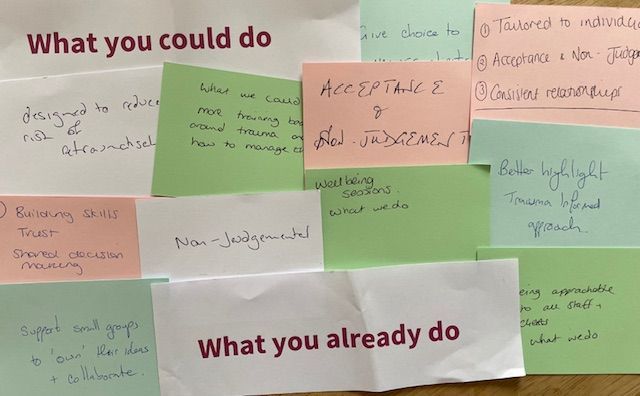From individual actions to collective wellbeing: rethinking workplace wellness strategies
New research identifying the need for an organisational approach to resilience and wellbeing

Recent research conducted by the University of Oxford has raised questions about the effectiveness of workplace wellbeing initiatives that are focused at individuals. The research identifies that programs targeted at individuals, such as mindfulness and stress management are more commonly utilised in organisations over systems approaches. Although there have been positive findings in experiments in relation to some of these techniques, this research suggests that they don’t have an effect in the messy world of the workplace. In research terms this is called ecological validity – the extent to which experimental findings can be generalised to real-world settings, and why randomized control trials, often called the gold standard of research, are not always useful.
The need for an organisational approach in this study are also reinforced by the National Institute for Health and Care Excellence (NICE), that recommends that organisations, “Adopt a tiered approach to mental wellbeing in the workplace by using organisational-level approaches as the foundation for good mental wellbeing (the first [bottom] tier), followed by individual approaches (the second [middle] tier) and targeted approaches (the third [top] tier)”.
The critique of current wellbeing practices
The Trades Union Congress is among organisations that criticise the approach of "Changing the worker and not the workplace," and NICE also has recommendations for the importance of organisational change. The Oxford study addresses this and examines various interventions to determine whether individual-level mental wellbeing initiatives truly enhance employee wellbeing.
Insights from Britain's Healthiest Workplace Survey
Analysing data from 46,336 individuals across 233 organisations, the research provides a comprehensive overview of the impact of wellbeing initiatives. It found that most individual-level interventions, including relaxation practices and wellbeing apps, do not significantly impact wellbeing, with volunteering being the notable exception.
The impact on job demands and resources
The study used a framework of looking at job demands and resources to analyse findings. Despite previous positive reviews of various interventions in work psychology literature, this study reveals that participants in these individual-level interventions report the same levels of mental wellbeing as non-participants. Although interventions aim to equip employees with stress-coping tools, in reality they may heighten awareness of overwhelming demands without necessarily addressing their root causes, leaving the participant more dissatisfied. Participants in mindfulness, time management, and volunteering programs reported heightened levels of perceived support for stress at work by their organisation (so they may feel more favourable towards their organisations), but again these positive feelings don’t translate into improved wellbeing.
An exception to the findings - volunteering and its link with social connections
The positive impact of volunteering interventions found in the results contrasts with the limited effects of other programs, with the suggesting that it’s the social resources and connections that may improve employee wellbeing more effectively than psychological skills. This reinforces the primacy of resilience being found in groups and social connections rather than being solely the property of individuals – and organisational rather than individual approaches to resilience can support this.
Conclusion: developing an organisational systems approach to wellbeing
The research calls for a shift from focusing solely on personal development programs to implementing structural changes that address the root causes of workplace stress. The study emphasises the importance of organisational interventions, such as changes in management practices and job design, over individual-focused initiatives. A holistic approach, combining individual support with organisational transformation, is essential for creating healthier, more supportive work environments.
Our training
This fits with the psychologically and trauma-informed training that Ideas to Impact provides. We unpick issues around worker wellbeing, the complexities of the concept of resilience, and vicarious trauma, and look at what organisations can do to support these in the day-to-day organisation of work.
A free three-day programme will be delivered by Becky Nixon from ideas to Impact and Sara Swire from New Dawn New Day at the end of March and mid-April for Leicester and Leicestershire organisations. This will consist of:
- From stress to strength: psychologically and trauma-informed team management on Wednesday 20 March
- Building solid foundations: trauma-informed systems and culture on Wednesday 10 April
- A space to think – creating a trauma informed organisational culture through reflective practice on Wednesday 17 April
Otherwise Ideas to Impact provides training and consultancy around trauma-informed management, tailored to organisations’ needs, get in touch.
There are a couple of previous articles that link to this:
- The review of a year-long trauma-informed organisational programme that New Dawn New Day and Ideas to Impact ran for organisations providing or advising on safe accommodation.
- How CALS (Community Advice and Law Service) has addressed staff wellbeing - I have been involved in my role on the board as chair of the people subgroup.










